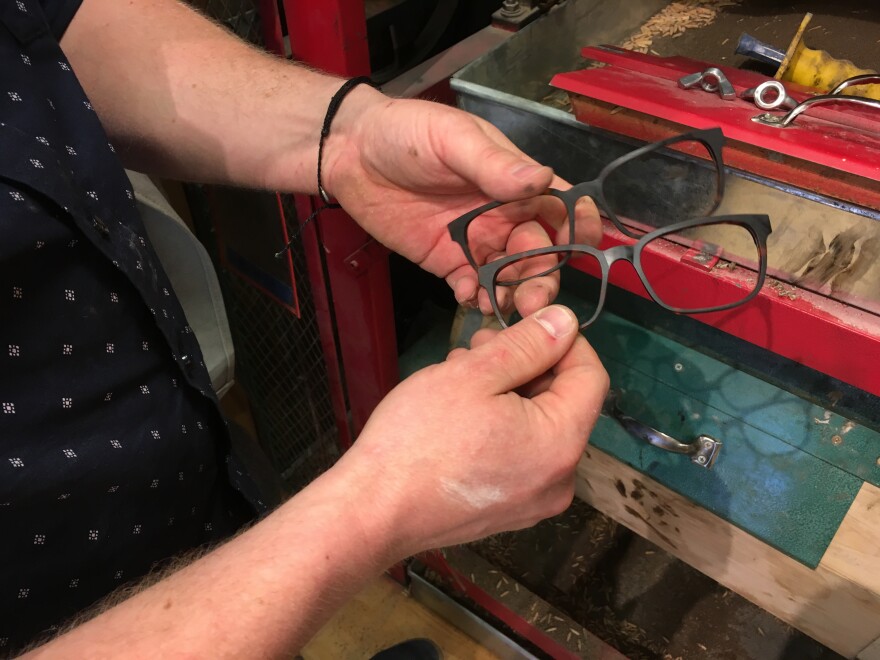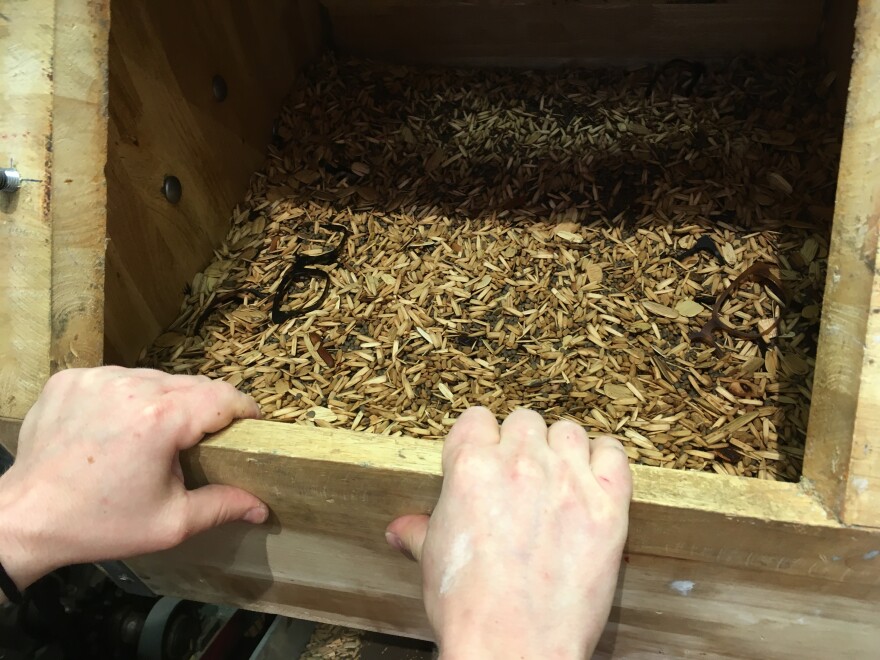Brothers Jack and Tony Erker did not want to go into the family optical business.
They spent years pursuing other careers to take them far from the shop at Sixth and Olive streets in downtown St. Louis, where it all started in 1879. But it’s hard to resist five generations of history, not to mention the entrepreneurial DNA embedded in their genes.
This spring Jack and Tony opened Copper Hinge, a brick-and-mortar optical shop in the Delmar Loop. The brothers envisioned a new way to sell eyeglasses, one that’s not available online or in other stores.
“What’s unique about our store is we are the only one with a factory inside,” Jack Erker said.
It takes about two weeks to transform big sheets of colorful acetate into frames. Jack Erker says they typically make 150 to 300 pairs at a time. The small batch approach to eyeglasses is similar to the craft brewery and small distillery concept.
Jack Erker worked with manufacturers in China — where most of the world’s glasses are made these days — to make an entire factory fit into the small store. A glass wall separates the factory from a minimalist retail area with shelves displaying frames.
“A typical factory would have 75 machines to make glasses,” he said. “But we didn’t have the space or the man power here. So we got it down to 19 machines.”
In addition to shrinking the factory, Jack Erker also taught himself the computer coding to program the robotic machines that use lasers to precision-cut frames out of thick sheets of acetate. Robotic arms can handle batches of 80 frames at a time.

"We were able to automate a lot of things, but not everything yet,” he said, as he led the way to the saw room in the basement.
Human hands are needed for more delicate jobs like sawing and inserting the copper hinges in the frames and temples.
Why copper hinges?
“Because it’s different,” Jack Erker said. “I’ve always thought the designers don’t pay you to wear their brand on your glasses. Why advertise for them? We wanted to say ‘Copper Hinge’ without actually saying it.”
The hinges are distinctive and customers can have their initials or name engraved inside the temple topped with a copper gloss.
“Copper as a material is hard to work with because it’s so soft, but we were able to trademark a way of plating stainless steel with this copper coating. It won’t tarnish over time or turn green,” he explained.
Tony Erker handles the marketing and retail side of the business. He said the factory-store combination is designed to lure customers away from online shopping. It invites them to be a part of the creative process. From choosing a custom color to voting on names for frame styles, it’s an interactive experience.

“We’re doing factory direct pricing,” said Tony Erker. “We’re able to sell glasses with lenses for $95 bucks. People say manufacturing is dead in the U.S., but it’s not and we’re proof. It’s pretty cool to see something made with your two hands.”
Back when the Erkers’ great-great grandfather was starting out, he made all kinds of optical lenses for microscopes, telescopes, eyeglasses and cameras. His company was the official photographer for the 1904 World’s Fair. Charles Lindbergh ordered custom-made shatterproof goggles from the Erker shop for his transatlantic flight. And more recently, Erker opticians have made glasses for Harry Caray, Sally Jesse Raphael, Nelly and Elton John.
It’s a legacy that the fifth generation of the family takes seriously, now that they’re in the business. And they’ve got big plans for their little factory in the Loop.
“I just love seeing all the jobs we have created and there’s more to come with the Copper Hinge project,” Jack Erker said. “We are poised for a lot of growth and I think it will become a nationwide brand, not just a local, homegrown brand.”
Follow Melody Walker on Twitter @melodybird.

